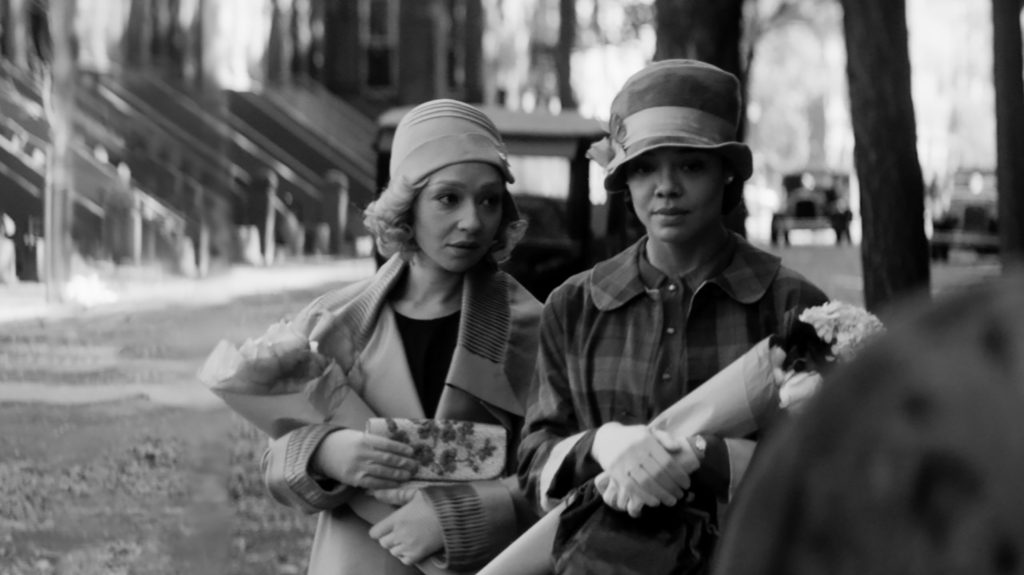Newly reimagined thanks to COVID-19, this year’s edition of Sundance Film Festival is just around the corner. With nearly 50 percent of features directed or co-directed by women, there are dozens of titles we’re looking forward to seeing. We’ve assembled some of Sundance 2021’s highlights, diverse offerings that include an ode to Rita Moreno, a period romance starring Katherine Waterston and Vanessa Kirby, and a documentary exploring government coverups in the age of a pandemic. This list is far from exhaustive. Other titles on our radar include Marion Hill’s “Ma Belle, My Beauty,” the story of former polyamorous lovers who reunite in Southern France, Prano Bailey-Bond’s “Censor,” a horror pic about a film censor investigating her sister’s disappearance, and Jessica Beshir’s “Faya Dayi,” a documentary exploring the rituals of khat, a leaf chewed for religious meditations that’s also Ethiopia’s most lucrative cash crop today.
Sundance 2021 runs from January 28-February 3. Be sure to check out our interviews with directors screening features at the fest, which we’ll be running throughout the week.
Here are some of our most anticipated films of Sundance 2021. Synopses are courtesy of the festival.
“Passing” – Written and Directed by Rebecca Hall
What it’s about: Two African-American women who can “pass” as white choose to live on opposite sides of the color line in 1929 New York in an exploration of racial and gender identity, performance, obsession, and repression. Based on the novella by Nella Larsen.
Why we’re excited: We’re always happy to see actors stepping behind the camera, and Rebecca Hall has assembled an all-star cast for her feature directorial debut: Tessa Thompson and Ruth Negga play old friends who unexpectedly reunite. A black-and-white psychological thriller, “Passing” engages with race, gender, motherhood, and female friendship — the period pic’s subject matter remains as timely as ever. “Passing” is also a a personal story for Hall, whose on-screen credits include “Professor Marston & the Wonder Women,” “Iron Man 3,” and “Vicky Christina Barcelona.” The multi-hyphenate discovered the novella the film is based on at a time when she was “trying to reckon creatively with some of [her] personal family history, and the mystery surrounding [her] bi-racial grandfather on [her] American mother’s side.” She’s described making “Passing” as “an exploration of that history, to which [she’s] never really had access.”
“Rita Moreno: Just a Girl Who Decided to Go For It” (Documentary) – Directed by Mariem Pérez Riera
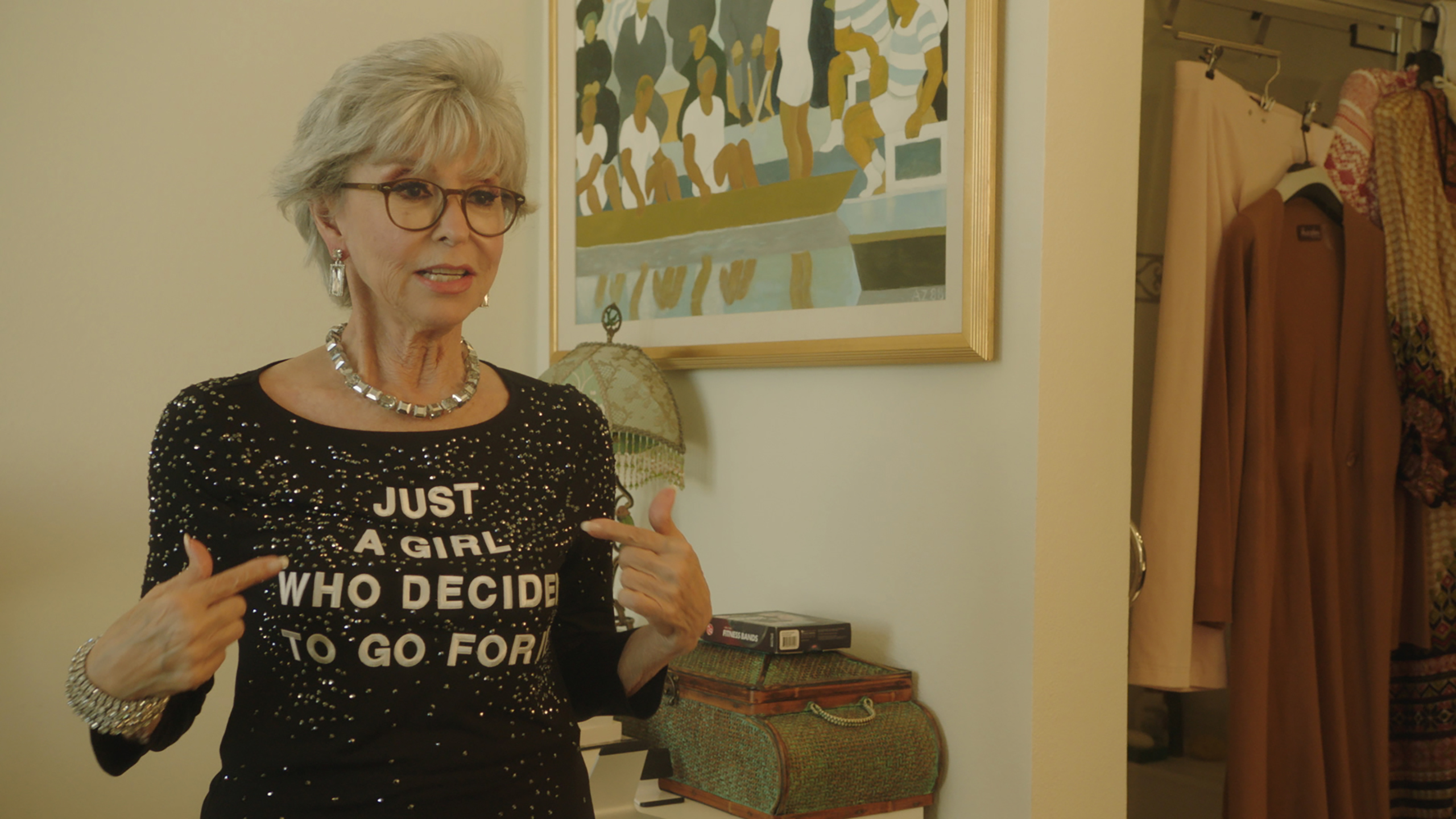
“Rita Moreno: Just a Girl Who Decided to Go For It”: Sundance Institute
What it’s about: Rita Moreno defied both her humble upbringing and relentless racism to become one of a select group who have won an Emmy, Grammy, Oscar, and Tony Award. Over a 70-year career, she has paved the way for Hispanic-American performers by refusing to be pigeonholed into one-dimensional stereotypes.
Why we’re excited: We were sorry to learn of “One Day at a Time’s” recent cancellation, but a documentary about Rita Moreno to look forward to is softening the blow. Her portrayal of Lydia on the re-imagined sitcom was just the latest reminder of how talented the EGOT winner is. “Rita Moreno: Just a Girl Who Decided to Go For It” pays tribute to the trailblazer and her storied legacy. The doc also reflects on all that the “West Side Story” star has endured along the way, including sexism, sexual abuse, and stereotyping.
“This film shows a woman who encountered many obstacles — not only as a woman, but also as an immigrant Puerto Rican woman,” director Mariem Pérez Riera told us. “Her greatest achievement is not all her accolades, but finally becoming her true self.” The filmmaker explained, “As a Puerto Rican woman myself, I have a different perspective about Rita. She is a true icon for us. She represents that community of Puerto Ricans who have left the island for a better life and as a Puerto Rican, I’ve followed her story all my life.”
With “Just a Girl Who Decided to Go For It,” Pérez Riera celebrates an icon who has inspired not only herself but millions of others.
“Playing With Sharks” (Documentary) – Directed by Sally Aitken
What it’s about: Valerie Taylor is a shark fanatic and an Australian icon – a marine maverick who forged her way as a fearless diver, cinematographer, and conservationist. She filmed the real sharks for “Jaws” and famously wore a chainmail suit, using herself as shark bait, changing our scientific understanding of sharks forever.
Why we’re excited: Folks are finally starting to realize that humans are more of a threat to sharks than the other way around, but Valerie Thomas has devoted decades to the cause. The former spearfishing champion, shark expert, and marine conservationist sounds like the kind of heroine we would’ve loved to read about as kids. Still free swimming with bull sharks at the age of 85, Thomas has spent years making memories playing with sharks underwater, a life many wouldn’t have imagined possible for someone who was immobilized with polio as a 12-year-old.
Sally Aitken’s “Playing with Sharks” celebrates Thomas’ adventurousness and advocacy, and a life so full of remarkable stories that some truly amazing chapters ended up on the film’s cutting room floor. “Valerie’s exploits include amazing anecdotes, and many twists and turns you want to include. For example, her sustained relationship with a moray eel for over 35 years; her macro underwater photography that wowed National Geographic in 1973; saving herself from drowning, using only her hair ribbons; and even teaching Mick Jagger to scuba dive. If you can believe it, these are the stories we left behind!” Aitken told us.
“Writing With Fire” (Documentary) – Directed by Rintu Thomas and Sushmit Ghosh
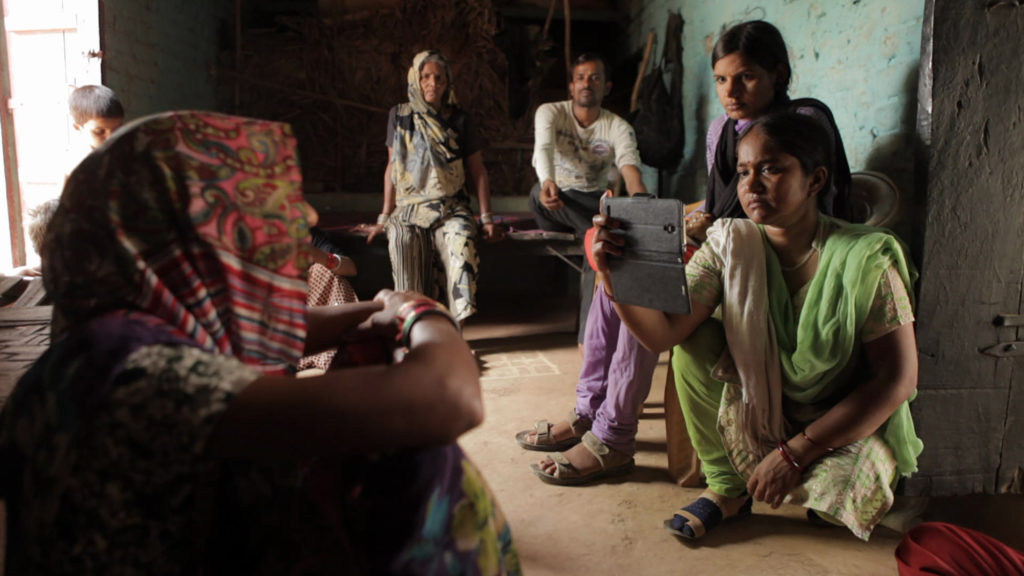
“Writing with Fire”: Black Ticket Films/Sundance Institute
What it’s about: In a cluttered news landscape dominated by men, emerges India’s only newspaper run by Dalit women. Armed with smartphones, Chief Reporter Meera and her journalists break traditions on the frontlines of India’s biggest issues and within the confines of their own homes, redefining what it means to be powerful.
Why we’re excited: Co-director Rintu Thomas pretty much summed it up with this revelation in her interview with Women and Hollywood: “In the early shooting schedules for the film, we followed our central protagonist Meera to the sets of an interview-based show…Backstage, one of the crew members asked her, ‘You come from a place where simply stepping out of home [women need] to wear a veil and ask for permission — how did you get the permission to do what you are doing?’ Meera smiled and said, ‘Sometimes, permissions are not sought, they are simply taken. It hasn’t been easy, but I didn’t allow myself to choose the opposite.’”
As women and as Dalit people — who are designated “untouchable” — the subjects of “Writing With Fire” faced many obstacles on their way to operating their own newspaper. But they did it, without precedent, without asking, and without permission. As conversations about inclusion, free speech, and the state of the press continue, we’re thrilled to see a doc about women coming into their own power and keeping the world informed.
“The World to Come” – Directed by Mona Fastvold
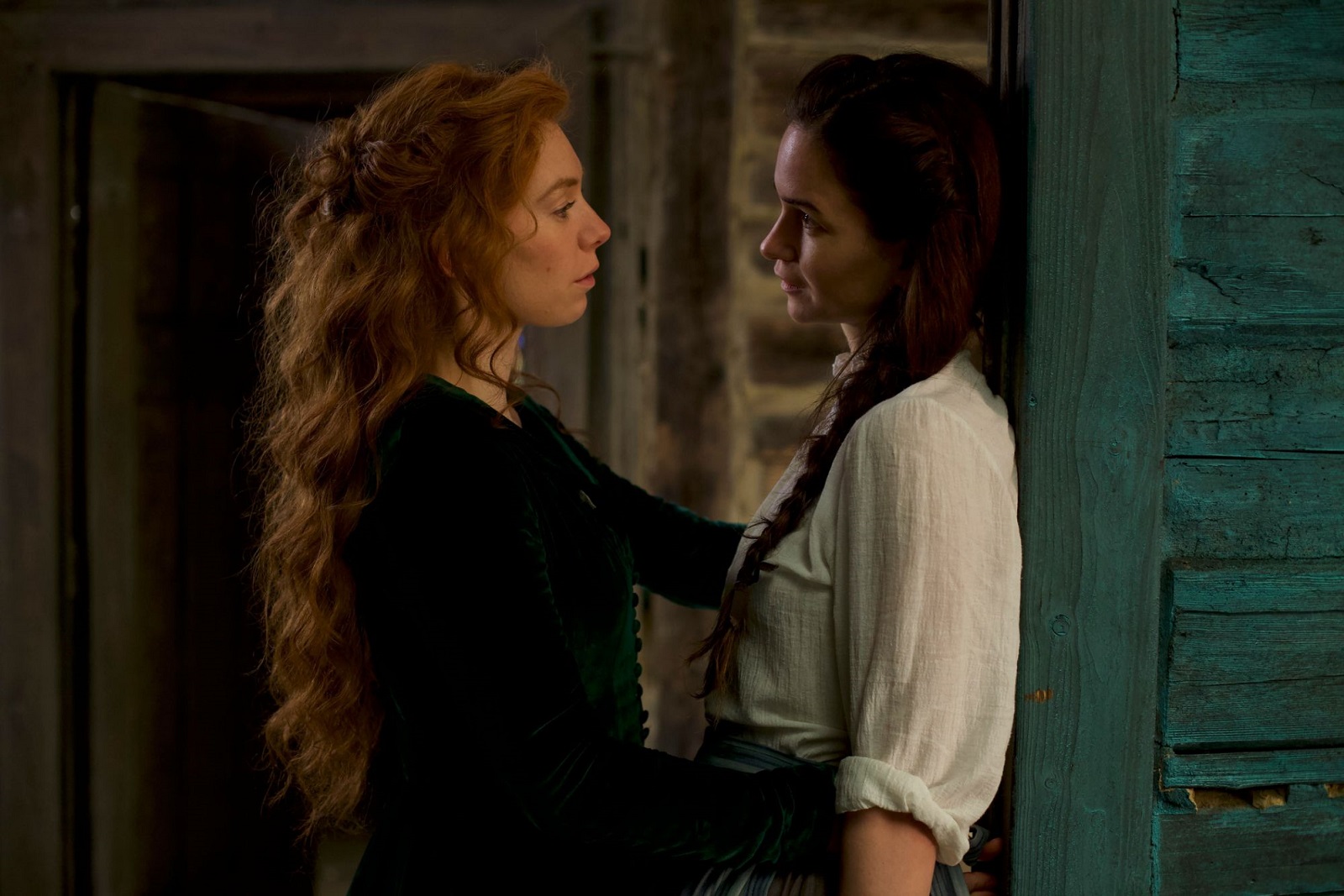
“The World to Come”
What it’s about: Somewhere along the mid-19th century American East Coast frontier, two neighboring couples battle hardship and isolation, witnessed by a splendid yet testing landscape, challenging them both physically and psychologically.
Why we’re excited: Vanessa Kirby follows up her powerhouse performance in “Pieces of a Woman” with another awards contender. The winner of the Queer Lion at last year’s Venice Film Festival, Mona Fastvold’s “The World to Come” sees Kirby and Katherine Waterston playing farmers’ wives who dream of living different lives. After bonding over their shared discontent, Tallie and Abigail discover they also share a mutual attraction.
“The World to Come” is a love story, but it is also the story of an artist. Abigail’s diary entries reveal a talented writer who has made her life bearable by practicing her craft, an exercise that ensures her intellect remains engaged and her voice is never silenced.
We’re looking forward to watching Abigail and Tallie’s romance unfold– and to seeing how Abigail immortalizes her new lover in the pages of her diary.
“Marvelous and The Black Hole” – Written and Directed by Kate Tsang
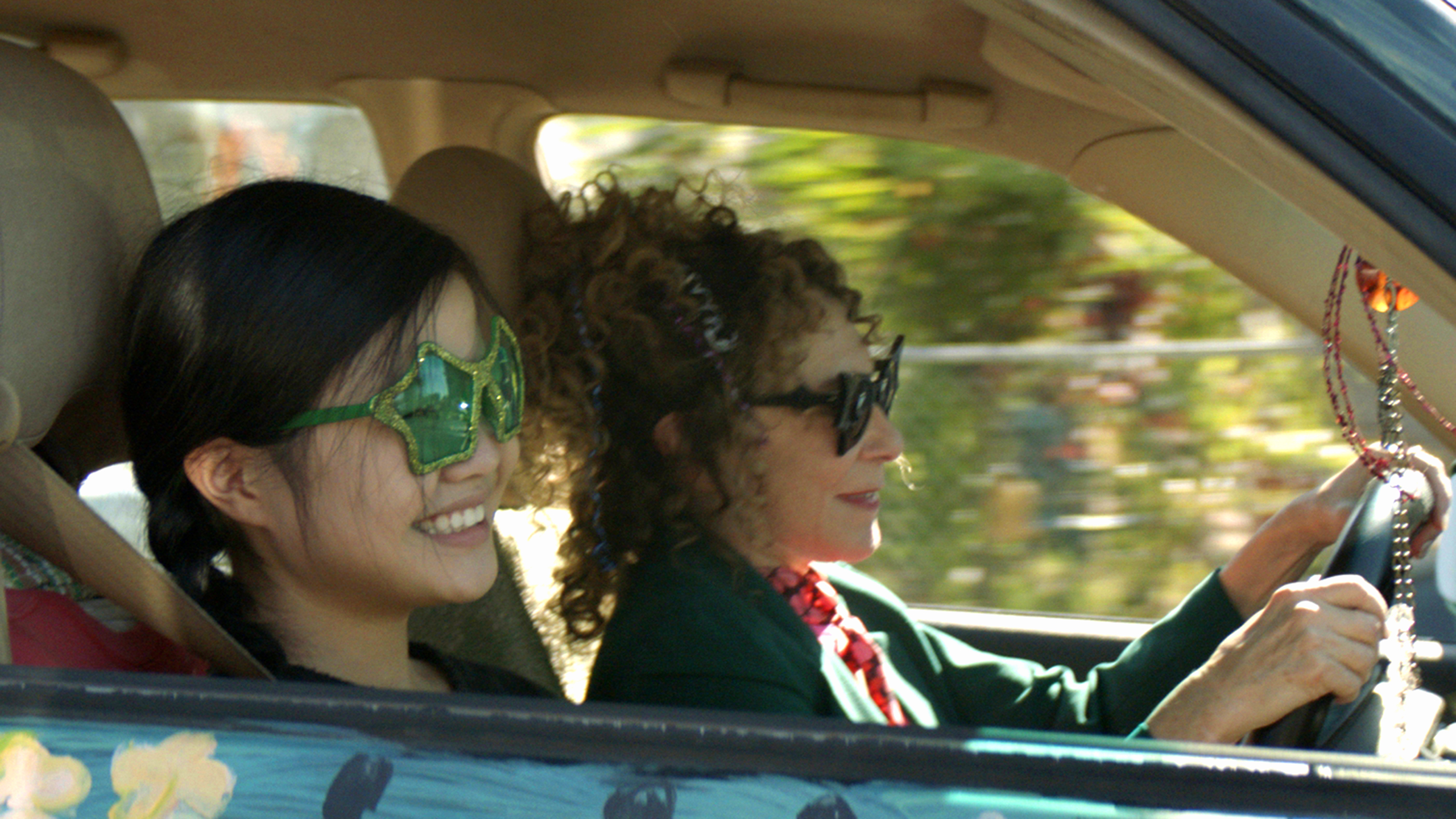
“Marvelous and the Black Hole”: Nanu Segal/Sundance Institute
What it’s about: A teenage delinquent befriends a surly magician who helps her navigate her inner demons and dysfunctional family with sleight of hand magic, in a coming-of-age comedy that touches on unlikely friendships, grief, and finding hope in the darkest moments.
Why we’re excited: Inspired by writer-director Kate Tsang’s own experiences with depression and her connection with her grandfather, “Marvelous and The Black Hole” is a reminder that joy and fulfillment can be discovered in the unlikeliest of places. For Sammy (Miya Cech), learning sleight of hand from Margot (Rhea Perlman) allows her to channel and process her pain.
Just as magic helps Sammy to heal, Tsang hopes “Marvelous and The Black Hole” is an aid for any struggling viewers. “One of the themes in the film is about finding outlets to communicate, to connect, and to transform from painful experiences. How do we find the light in the dark?” she explained in an interview with Women and Hollywood. “I hope the audience leaves the film feeling a little better than when they first came in. It would be the highest praise for me if the film made someone feel less alone or gave them some hope during a difficult time.”
“CODA” – Written and Directed by Siân Heder
What it’s about: As a CODA – Child of Deaf Adults – Ruby is the only hearing person in her deaf family. When the family’s fishing business is threatened, Ruby finds herself torn between pursuing her love of music and her fear of abandoning her parents.
Why we’re excited: A remake of French film “La Famille Belier,” “CODA” takes on a fairly universal story — the coming-of-age tale — through a perspective that doesn’t get enough attention in pop culture. The main character, Ruby (Emilia Jones), isn’t only a teenager figuring out who she is, she’s also the sole hearing person in her family. Finding your own identity apart from your family can be extra complicated when you already feel a bit different from the rest of the clan.
And while we’re always up for a movie about a teen girl finding herself, we’re also psyched for “CODA” because writer-director Siân Heder understands the importance of representation and inclusion in film. “Through my research into the world of CODAs and the Deaf community, it became more and more important to me to authentically represent this Deaf family and Deaf culture in a way that isn’t often seen in movies,” she told us. “I think many hearing people don’t have any experience of Deaf culture. People who have seen the film describe to me the powerful experience of watching scenes in ASL and how any discomfort with that experience fades away as they become invested in the characters and their struggles and triumphs.”
“My Name is Pauli Murray” (Documentary) – Directed by Betsy West and Julie Cohen
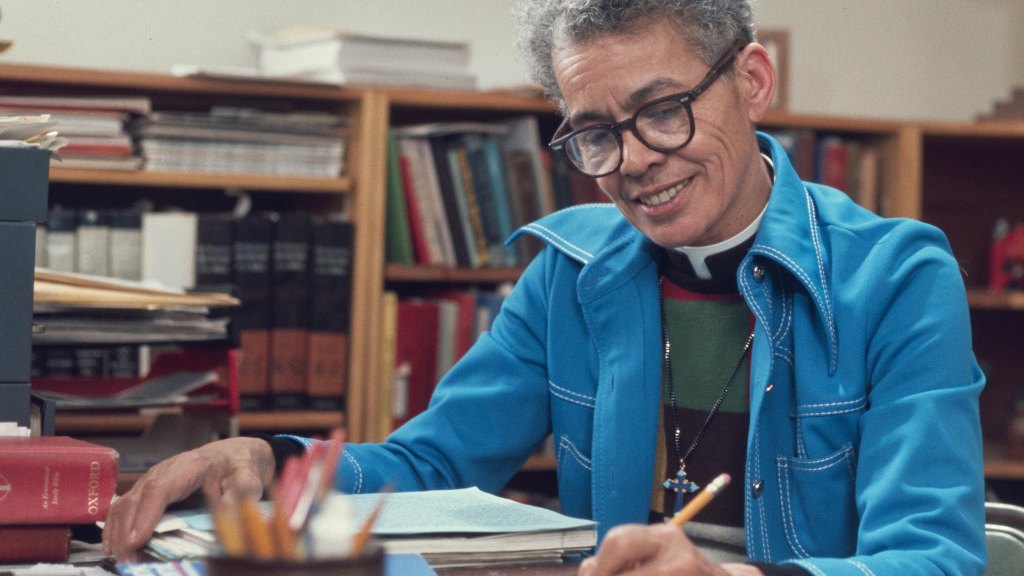
“My Name is Pauli Murray”
What it’s about: Overlooked by history, Pauli Murray was a legal trailblazer whose ideas influenced RBG’s fight for gender equality and Thurgood Marshall’s landmark civil rights arguments. Featuring never-before-seen footage and audio recordings, a portrait of Murray’s impact as a non-binary Black luminary: lawyer, activist, poet, and priest who transformed our world.
Why we’re excited: “RBG” filmmakers Betsy West and Julie Cohen are telling the story of another pioneering political figure. Pauli Murray doesn’t have the same level of name recognition as the late Justice Ginsburg, and it’s high-time that changed. Murray was a true multi-hyphenate: she was the first Black person to earn a JSD from Yale Law School; her legal arguments were used in fights for school desegregation, women’s rights in the workplace, and civil rights protections for the LGBTQ+ community — not to mention made an impact on RBG’s work; and she was the first Black woman ordained as an Episcopal priest. Here’s hoping “My Name is Pauli Murray” will educate the world about the titular activist’s many accomplishments and ensure her legacy takes its rightful place in the history books.
“In the Same Breath” (Documentary) – Directed by Nanfu Wang
What it’s about: How did the Chinese government turn pandemic coverups in Wuhan into a triumph for the Communist party? An essential narrative of firsthand accounts of the coronavirus, and a revelatory examination of how propaganda and patriotism shaped the outbreak’s course – both in China and in the U.S.
Why we’re excited: Nanfu Wang has helmed some of our favorite docs from the past few years — “One Child Nation,” “Hooligan Sparrow” — and we have a feeling “In the Same Breath” will be just as compelling. The film examines COVID-19’s beginnings in Wuhan and the role Chinese and U.S. propaganda played in the ensuing pandemic.
Obviously, the coronavirus pandemic is still very much a thing, and will be for a while yet. With its warping of time, it can be jarring to remember that the virus was discovered less than 18 months ago — indeed, we’re getting to the point where it feels like COVID always was and always will be. Understanding how we got here is essential. It seems “In the Same Breath” will educate us on just that. Hopefully we in turn can move forward and ensure the many fumbling responses to the crisis are not repeated in the future.
“Rebel Hearts” (Documentary)
What it’s about: A group of pioneering nuns bravely stand up to the Catholic Church patriarchy, fighting for their livelihoods, convictions, and equality against an all-powerful Cardinal. From marching in Selma in 1965 to the Women’s March in 2018, these women have reshaped our society with their bold acts of defiance.
Why we’re excited: Like 2015’s “Radical Grace” and 2017’s “The Keepers,” “Rebel Hearts” celebrates defiant nuns who aren’t afraid to question — and condemn — the Catholic Church and all its hypocrisy. The nuns at the center of the doc are guided by their conscience, even if that means standing up to the powerful institution of which they are a part and holding it accountable. Despite being under immense pressure to toe the line, these women champion their own vision of social justice.
The doc hails from Emmy winner Pedro Koss, who has worked in the editorial department of a number of women-directed films that we’ve loved over the years, Lauren Greenfield’s “The Kingmaker,” Assia Boundaoui’s “The Feeling of Being Watched,” and Amber Fares’ “Speed Sisters” among them.
